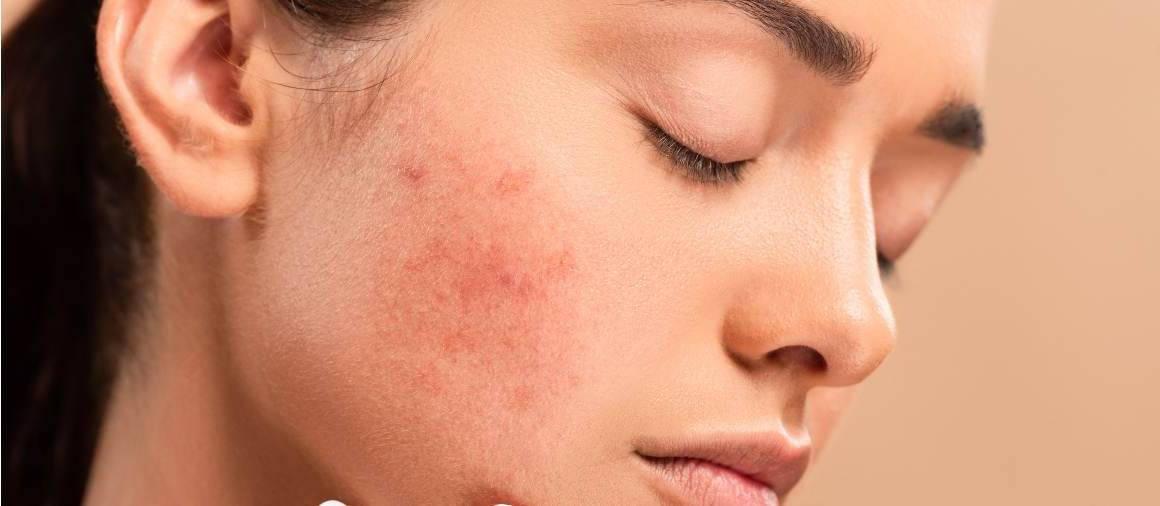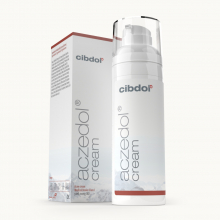What do dermatologists usually prescribe for acne?
Published:
Acne is one of the most common skin conditions that dermatologists treat. It affects people of all ages, but is most prevalent among teenagers and young adults. While some cases of acne resolve on their own or with over-the-counter treatments, persistent or severe acne often requires prescription medication.
Contents:
So what do dermatologists usually prescribe to treat acne? There are several prescription medications that doctors may recommend, depending on the type and severity of acne. Here’s an overview of the most commonly prescribed acne treatments.

Topical Retinoids
Topical retinoids are often the first line of defense against acne. Retinoids work by speeding up skin cell turnover, preventing pores from becoming clogged and reducing inflammation. They come in various strengths and formulas such as gels, creams and lotions.
Some of the most widely prescribed topical retinoids for acne are:
- Tretinoin - This is the strongest retinoid available by prescription. Brand names include Retin-A, Atralin and Avita.
- Adapalene - Available under the brand name Differin, this retinoid is gentler than tretinoin. It’s often a good option for first-time retinoid users.
- Tazarotene - Sold as the brand names Tazorac and Avage, tazarotene is a medium-strength retinoid.
Retinoids can cause side effects like skin irritation, redness, peeling and sun sensitivity. Dermatologists usually recommend starting with a lower strength or applying every other day, then gradually increasing frequency to allow skin to adjust. Consistent use is key to get the full benefits.
Oral Antibiotics
For moderate to severe inflammatory acne, oral antibiotics are frequently prescribed. Antibiotics work by killing acne-causing bacteria and reducing inflammation.
Some of the antibiotics dermatologists prescribe for acne treatment include:
- Doxycycline - A widely used tetracycline antibiotic that treats acne by targeting P. acnes bacteria. It comes in regular or delayed-release capsules.
- Minocycline - Another tetracycline antibiotic that works against acne bacteria. It’s available in capsule and tablet forms.
- Erythromycin - A macrolide antibiotic that stops bacterial growth. It comes as tablets, capsules, gels and solutions.
Antibiotics are usually taken for a period of 6-8 weeks, then discontinued once acne has improved. Long term use can increase antibiotic resistance. Doctors may prescribe a topical retinoid or benzoyl peroxide along with oral antibiotics to prevent antibiotic resistance.
Hormonal Therapies
For women with acne related to hormonal fluctuations, birth control pills or hormone-modulating drugs may be prescribed. Options include:
- Combined oral contraceptives - Birth control pills containing estrogen and progestin can help control acne flares related to the menstrual cycle. Popular brands prescribed for acne include Yaz, Estrostep and Ortho Tri-Cyclen.
- Spironolactone - This diuretic blocks androgens, male hormones that trigger excess oil production and worsen acne. It’s prescribed off-label for hormonal acne.
- Flutamide - Another androgen blocker sometimes prescribed for women with severe, hormone-driven acne that doesn’t respond to other treatments.
Doctors closely monitor patients taking hormone therapies for potential side effects. Treatment is discontinued once acne has improved to prevent long term side effects.
Isotretinoin
For the most severe, scarring or treatment-resistant acne, isotretinoin may be prescribed. Often referred to by the brand name Accutane, isotretinoin is a form of synthetic vitamin A. It’s the most powerful acne medication available.
Isotretinoin works by dramatically reducing oil production, preventing clogged pores and reducing bacteria and inflammation. A 4-6 month course usually leads to prolonged clearing of acne.
Due to the risk of serious side effects, isotretinoin is only prescribed for severe acne that hasn’t responded adequately to other treatments. Strict guidelines around dosing, required lab testing and birth defect prevention apply.
Combination Treatments
For many acne patients, dermatologists prescribe a combination of oral and topical medications. This can help target acne through multiple mechanisms of action and may increase efficacy.
Some examples of combination acne treatments include:
- Topical retinoid + oral antibiotic
- Topical retinoid + benzoyl peroxide
- Oral antibiotic + benzoyl peroxide
- Hormonal therapy + topical retinoid
The right combination depends on acne type and severity. Doctors may modify regimens over time based on how well the skin responds. Adherence to the full treatment course is important to achieve the best results.
Lifestyle Tips and Self-Care
In addition to prescription medications, dermatologists provide important lifestyle and self-care recommendations to help manage and prevent acne. These include:
- Avoiding pore-clogging products - Stick to oil-free cosmetics and non-comedogenic skin care products. Avoid heavy creams or oils.
- Washing face twice daily - Use a gentle cleanser and lukewarm water. Avoid scrubbing skin hard.
- Limiting touching/squeezing pimples - This can worsen inflammation and lead to infection. Leave extractions to professionals.
- Watching diet - While no foods conclusively cause acne, a balanced, low glycemic diet is best. Stay hydrated, limit dairy/sugar if they seem to trigger breakouts.
- Managing stress - Stress doesn’t cause acne but can exacerbate it. Relaxation techniques help.
- Avoiding excessive sun exposure/tanning beds - Sun can worsen post-inflammatory hyperpigmentation. Always wear sunscreen.
With professional treatment and good self-care, acne can be managed effectively. follow your dermatologist’s recommendations for optimal results. Consistency and patience are key - it may take 6-8 weeks to see substantial improvement. But don’t get discouraged, clearing acne is a process! With the right prescription regimen tailored to your skin, you can get your acne under control.
Frequently Asked Questions
Still have some questions about prescription acne treatments? Here are answers to some commonly asked questions:
How long do I have to take oral antibiotics for acne?
Most dermatologists recommend taking oral antibiotics like doxycycline or minocycline for 6 to 8 weeks. After that, they are generally stopped and replaced with a topical retinoid or benzoyl peroxide maintenance regimen. Taking antibiotics for longer than 8 weeks increases the risk of antibiotic resistance.
Why can’t I stay on antibiotics long-term if they’re working?
While oral antibiotics often provide quick initial relief for inflammatory acne, they won’t result in long-term clearance on their own. Staying on them too long can make acne-causing bacteria become resistant, rendering the antibiotics ineffective. Plus, long-term antibiotic use can lead to side effects. That’s why docs switch to safer maintenance options.
What is the difference between OTC and prescription retinoids?
Over-the-counter retinol is a weaker, nonprescription form of vitamin A. Prescription retinoids like tretinoin and tazarotene are much stronger. Retinoids require a prescription because of potential side effects like peeling and redness. Prescription retinoids also clear acne much more effectively long-term.
How quickly does isotretinoin (Accutane) work?
Many patients see initial improvement in acne after 4-6 weeks on isotretinoin. Maximum clear skin is typically achieved after a full 4-6 month course. Cystic acne may improve faster than blackheads or whiteheads. Always finish the full prescribed isotretinoin course, even if skin clears earlier.
Why do I need lab tests for isotretinoin?
Regular bloodwork is required on isotretinoin to monitor for side effects like elevated liver enzymes or lipid levels. Women must have monthly pregnancy tests. Staying up to date on labwork helps ensure isotretinoin is tolerated safely so you can complete the course.
Can prescription acne medication be used long term?
For severe cases, long-term medication may be warranted. Oral antibiotics should only be used short-term. Hormonal therapies or low dose isotretinoin can safely be continued for years in some patients to keep acne at bay. Most folks can switch to OTC options after 6-12 months and only use prescriptions periodically if big flares occur.
Key Takeaways
- Topical retinoids like Retin-A are often the first prescription treatment for acne. They help unplug pores and reduce inflammation without antibiotics.
- Oral antibiotics may be prescribed for inflammatory acne. Doxycycline and minocycline are most commonly used. Antibiotics should only be taken for 6-8 weeks.
- Hormonal therapies like birth control pills or spironolactone help treat acne in women with hormonal flares. They regulate androgen levels.
- Severe, scarring acne may require isotretinoin (Accutane). This strong vitamin A drug reduces oil production and bacteria. Multiple months of treatment are required.
- For optimal results, combination prescription treatments are often prescribed. Topical and oral medications used together target acne in multiple ways.
- Lifestyle measures like avoiding oil-based products, not squeezing pimples and reducing stress help complement prescription treatments.
Persistence and consistency are key -with professional care and the right medications tailored to your acne, you can get relief and achieve clear, healthy skin again.
What are some reasons why acne stops responding to a treatment that was previously working?
There are a few potential reasons acne may stop responding to a treatment that was previously effective:
- Bacteria became resistant to the antibiotic and it is no longer working. This is why docs recommend limiting antibiotic use to 6-8 weeks.
- Hormonal changes like puberty, menstruation, or starting/stopping birth control can trigger new breakouts that your current regimen may not address.
- Increased stress levels may be exacerbating acne again. Stress doesn’t cause acne but can worsen existing cases.
- Skin may have become too dry and irritated from a topical retinoid or benzoyl peroxide, reducing tolerance. Easing back on frequency may help mitigate this side effect.
- Not using the medications consistently or as directed can lead to decreased efficacy. It’s crucial to follow the regimen exactly.
- The acne may have evolved into a more severe form over time that requires stronger therapy.
If I use a retinoid cream can I also use a salicylic acid or benzoyl peroxide product?
Yes, retinoids are often combined with other over-the-counter acne fighters like salicylic acid or benzoyl peroxide. However, it’s best to use them at different times of day to avoid skin irritation. For example, use the retinoid at night and the salicylic acid or benzoyl peroxide product in the morning. Always consult your dermatologist before adding new products to your regimen.
How long does it take oral isotretinoin to leave your system after finishing treatment?
Isotretinoin takes around one month to be eliminated from your body after discontinuing treatment. Isotretinoin’s effects on the sebaceous glands can persist for weeks to months after stopping, with oil production normalizing around 6 months post-treatment in most patients. The acne-fighting benefits often last much longer.
Does acne ever go away permanently or is maintenance treatment always needed?
For many, acne goes away permanently in their 20s when hormone levels stabilize. However, some continue battling breakouts into adulthood and require ongoing maintenance. Long-term topical retinoids, benzoyl peroxide, or hormonal agents help keep flare-ups at bay. Occasional short antibiotic courses may be needed for bad flares. Working with a dermatologist helps develop an effective, personalized long-term management plan.
How do you know if over-the-counter treatments aren’t working and it’s time to see a dermatologist?
See a dermatologist if your acne doesn’t substantially improve after 2-3 months of consistent OTC treatment or if the acne is leaving scars. Moderate to severe inflammatory acne usually requires prescription treatment for best results. A dermatologist can help identify your acne type and get you started on more powerful therapies tailored to your unique situation. Don’t hesitate to get professional help sooner rather than later for better outcomes.
Can using too many acne products at once make things worse?
Yes, using too many products simultaneously can irritate skin and worsen acne in some cases. Acne treatment needs to be approached strategically. See a dermatologist to help design a focused regimen with synergistic ingredients that target acne in multiple ways without overdoing it on the actives. Sometimes less is more when treating acne!
If my acne is mostly hormonal, do I still need topical medications too?
Even if hormones are the primary trigger, adding topical medications can help optimize results. Hormonal therapies like birth control pills or spironolactone address the internal hormonal component while topical retinoids tackle the pores, bacteria and inflammation locally. Using both oral and topical treatments often clears acne most effectively. Your dermatologist can help determine the best combination approach.















